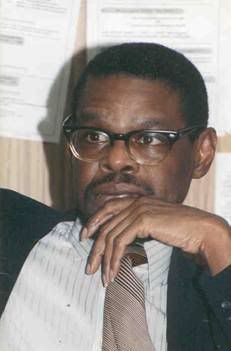By Eddie Griffin
Friday, November 14, 2008
I would not call Jack Z. Smith, of the Fort Worth Star-Telegram, a one-day wonder in economics. But I agree with him on some things in his recent editorial “Job 1” for President Barack Obama. But there is a minor disagreement on bailing out the financial institutions, based upon my understanding of Economics 101.
I agree with the proposed financial assistance for the automakers. This is Jobs 1.
Employers shed 240,000 jobs in October, the 10th consecutive month of job losses, which total 1.2 million for the year. The unemployment rate has risen to 6.5 percent, says Smith.
It is obvious: First things first. Stop the bleeding. This can be done by job retention in the auto industry, jobs creation in the public works and government sectors, and extending unemployment benefits.
It is important to note this observation by Z. Smith:
It seems as if almost everyone in the business world is retrenching these days — even normally full-speed-ahead billionaire Boone Pickens of Dallas. He and his investment firm have lost $2 billion from plunging energy prices.
(Source: http://www.star-telegram.com/news/columnists/jack_z_smith//index.html)
As goes the oil market, so goes the energy industry. Unless the utility rates are held artificially high, wind power energy does not look as profitable to private investors. As for Pickens’s planned wind farm, Smith writes: “He’s putting on hold a huge Texas Panhandle wind farm with a price tag of $10 billion-plus.”
This is not the death knell for wind and solar powered energy. To the private sector, the ROI (return on investment) window is too long. But to the public sector, the investment would have an indefinite life span, thus providing the infrastructure for new employment, and an optimistic window of opportunity into the new 21st century society.
Here is an opportunity for a government public works project.
Barack Obama will be a forward-thinking president, one who knows that clean energy would solve two problems at once. First, it would help save the planet, and secondly provide jobs for a future energy industry.
The president-elect is also efficient, taking what legislation, laws, policies, and executive orders that already exist on the books and using them immediately to tackle the sore spots in the national economy, rather than wholly reinventing the wheel in his own image and waiting for new legislation from the Congress.
Z. Smith writes:
We need to take well-thought-out measures to shore up financial institutions. But we also must put a focus on minimizing unemployment and creating jobs.
The federal and state governments could do that by accelerating funding for badly needed infrastructure projects, including construction, expansion and repairs for roads, bridges and transit systems. With gas prices tumbling, long-overdue increases in state and federal fuel taxes could help pay for the projects, as an alternative to increasing already-high budget deficits.
Very good, Mr. Smith, you deserve an A-minus.
But I have a problem with the idea of “shoring up financial institutions” because of the popular myth that purports the DOW Jones to be index of the nation’s financial health. Far from the truth, is signifies Wall Street’s health. We just have all bought into the notion that what’s good for Wall Street is good for America.
We the stock market began its free fall, we are lead to believe that the sky is falling upon all of us. But the black cloud is only over Wall Street, and not the rest of America. We have a problem with the “trickle down” mechanism in the trickle down economy. There is too much drinking at the top and allow a sip at the bottom.
The problem with Ronald Reagan’s "Trickle Down Theory", as it applies to the current crisis, is the fact we forget that market behavior is human behavior, and who can figure out human behavior? Investors buy because they want to make a profit. They sell because of God knows what. That the stock market is currently jumping around in positive and negative territory can probably be best described as a game of financial chicken: Who can leave their money in the financial instruments and stocks long enough to reap a good gain, and who will get scared and pull out of the market first? This is why we saw a string of late day sell offs.
Maybe a fireman can put a fire out by spraying the roof. But if the fire is in the basement, why are we pouring out the Treasury up top of financial institutions. This kind of bailout does not pay the mortgage or consumer credit card debt. It only allows the financial institution investors to recuperate their losses, re-inflate their stock value, and receive deferred un-taxable capital gains, and dividends. This is Bailout Wall Street 101.
NEXT: The Law of Circulation Key to Economic Recovery
Friday, November 14, 2008
Subscribe to:
Post Comments (Atom)

No comments:
Post a Comment